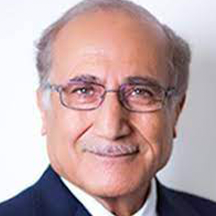Much of the apprehension in US domestic discourse over President-elect Donald Trump’s recent election success is echoed by foreign nations. They view his foreign policies as vague and ambiguous, making it difficult to predict their effects on the global stage.
Trump’s domestic and foreign policies are deeply intertwined, with the strongest evidence found in his “Make America Great Again” motto—a nationalistic slogan that is not abstract, but comparative. This motto implies that the United States should surpass its rivals in military strength, technological advancement, economic power, and global influence.
If this indeed marks a new American political paradigm, the world is about to enter a different era—one in which economic dominance becomes the ultimate ideal. As a result, longstanding “isms” such as pluralism, humanitarianism, capitalism, equitism, and even human rights could be reshaped and subjected to new practices.
Thomas Piketty’s groundbreaking 2014 book Capital in the Twenty-First Century stunned the world with its data on the dramatic concentration and inequality of wealth in the era of the Fourth Industrial Revolution. Piketty shows that profits have surged, particularly when compared to stagnant wages, and he warns that unless governments address this imbalance, capitalism itself may not survive the upheavals that will inevitably follow.
Trump, set to take office in less than two months, will assume power with control of both houses of Congress, backed by the momentum and support he has garnered. His cabinet picks so far appear to be ideological allies, ready to align with his policies and executive decisions. Among his key recruits are major figures like Jeff Bezos, Elon Musk, and Peter Thiel, tech industry giants poised to drive his “Make America Great Again” agenda. This paves the way for what I would call a “Wealthocracy,” a term that perhaps better captures today’s reality than “plutocracy.” Unlike a plutocracy, where the wealthy influence government, a wealthocracy sees them directly shaping and executing policy, effectively blurring the divide between the private and public spheres.
This strategy threatens to stoke rivalries among the world’s superpowers, leaving smaller nations scrambling to avoid being trampled. For Jordan, this situation presents a complex, nearly impossible dilemma—a true catch-22. Jordan’s best hope may be its ability to navigate the narrow corridors of regional and global power struggles, perhaps forced to yield to the demands of powerful nations and accommodate contradictory pressures.
Historically, Jordan has weathered various forms of complex situations, positioning itself as a model of respect for human rights, free from double standards, and committed to inalienable rights. But in a world driven by ruthless, self-interested calculations, will this stance hold relevance? Will the world simply accept this emerging order, or will there be resistance? In Jordan, our policy decisions are shaped by navigating a vector of conflicting local, regional, and international interests—what we often call, euphemistically, resilience.
It must always be remembered that Jordan, along with the entirety of its institutions, is firmly committed to the belief that any future regional projects aimed at fostering coexistence among Middle Easterners, cannot, and must not overlook Jordan’s spirit, strategic geopolitical position, and exemplary sense of justice. Despite expected paradigm shifts in the management of world affairs, where an interest-focused approach could dominate international relations, Jordan’s role will continue to hold on to those ideals; they are essential in facilitating the achievement of a comprehensive and sustainable peace.
The upcoming Trump administration has a tentative and sketchy plan, which merely outlines a path toward peace and remains contingent upon Saudi Arabia’s role as a key negotiating actor. While Jordan plays an active part in these negotiations, it views its pivotal role as the solidifying force for that peace, helping sustain it for the entire region.
